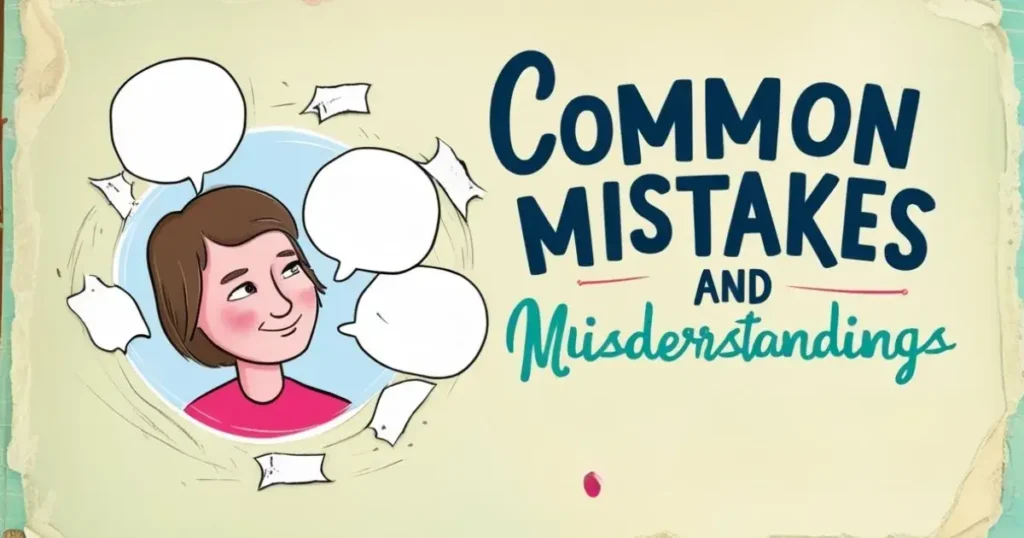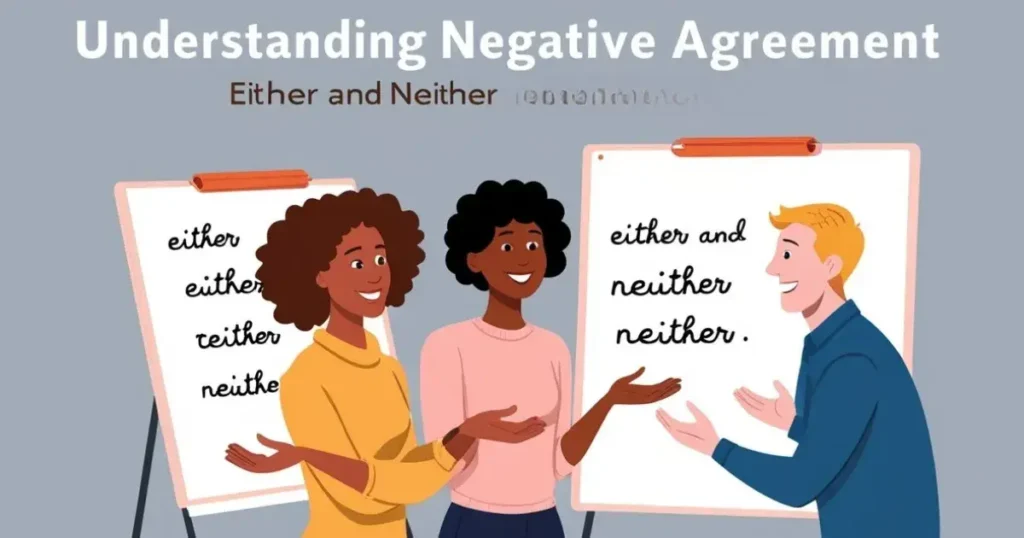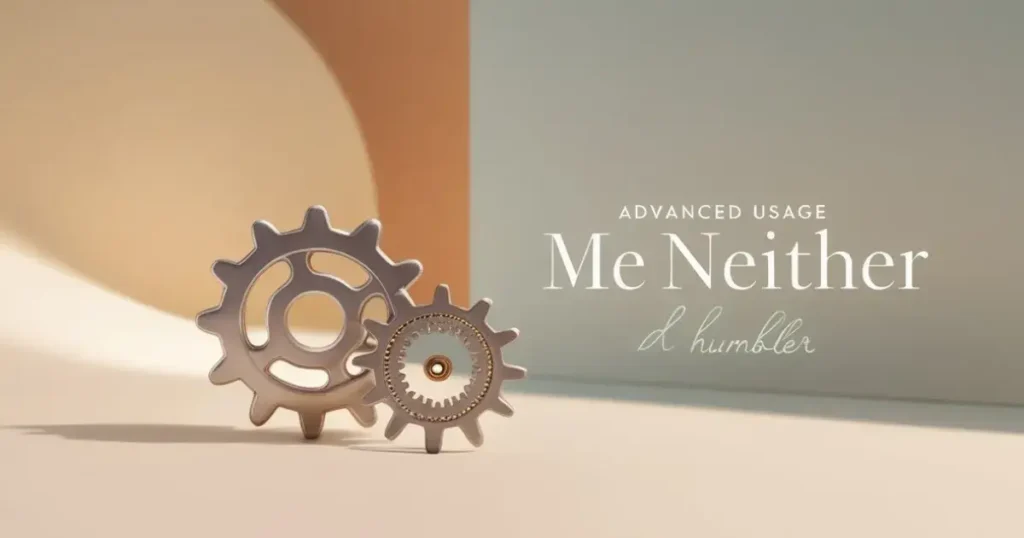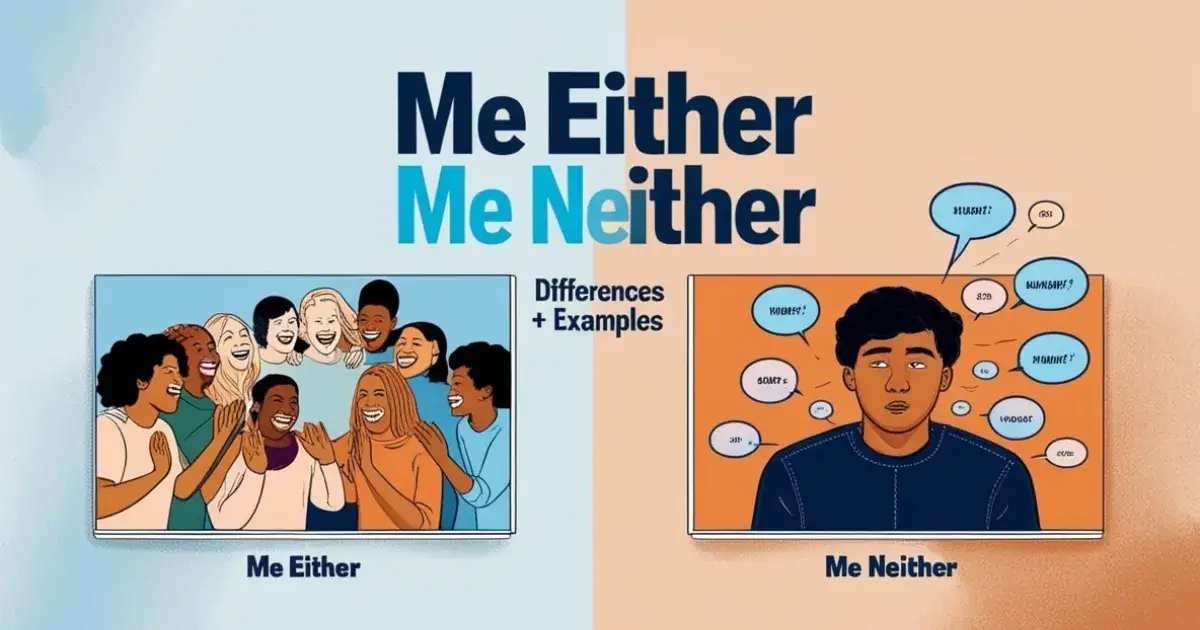Understanding the correct usage of Me Either or Me Neither is crucial for mastering English grammar, particularly when engaging in negative agreement. Many English learners (and even native speakers) struggle with these two phrases. While they may seem interchangeable at first glance, each has distinct rules of use, which, if misused, can lead to confusion or grammatical errors.
In this article we’ll dive deep into the Me Either or Me Neither debate, exploring the correct usage, common mistakes, and real-life examples to help you avoid pitfalls and communicate more effectively.
Understanding “Me Either” and “Me Neither”
What is Me Neither?

“Me Neither” is the correct phrase to use when agreeing with a negative statement. It is the appropriate response to express that you, too, share the negative sentiment expressed by someone else. Understanding me neither meaning helps clarify why this phrase is essential in expressing negative agreement, ensuring clear communication.
For example:
- Person A: “I don’t like pizza.”
- Person B: “Me neither.”
This construction is grammatically accurate and aligns with the rules of negative agreement. Me Neither is used to express a similar negative opinion or situation.
What is Me Either?
“Me Either” is often used informally in casual conversations, but it is grammatically incorrect. Despite its frequent misuse in spoken English, the me either meaning doesn’t fit the proper structure for negative agreement. It simply doesn’t align with the correct syntactical rules that govern how we respond negatively in English.
For example, the sentence:
- Person A: “I don’t like pizza.”
- Person B: “Me either.”
This usage is incorrect because “either” needs to be part of a more complex negative sentence structure like “I don’t like pizza either.” Hence, “Me either” doesn’t adhere to proper syntax and can create confusion.
The Importance of Context in Me Either or Me Neither Usage
In English, context is everything. The right response to a negative statement—Me Neither or Me Either—depends heavily on the context of the conversation. Understanding when to use either phrase is essential for grammatical correctness.
- In a negative context, such as when expressing a negative sentiment or agreeing with a negative statement, “Me Neither” should be used.
- “Me Either,” while commonly used in casual conversation, does not follow the grammatical rules for negative agreement and should be avoided in formal or professional settings.
Negative Agreement: Grammatical Rules
When a negative sentence is spoken, the usual structure to follow for agreement is:
Subject + Negative verb + Object (or modifier)
Example:
- Person A: “I don’t like spinach.”
- Person B: “Me neither.”
Here, the negative verb “don’t” triggers the use of “me neither” as the negative response. When “either” is used in a negative sentence, it should be placed after the negative clause like in:
- “I don’t like spinach either.”
Common Mistakes and Misunderstandings

Misuse of Me Either
The most frequent mistake people make is using “Me either” instead of “Me neither” in a negative sentence. This is typically due to informal language habits, where people substitute either for neither in casual conversation. However, this practice doesn’t align with formal English or grammar rules.
Correct Examples
- Correct: “I don’t like it.” → “Me neither.”
- Incorrect: “I don’t like it.” → “Me either.”
In the incorrect example, “Me either” violates the structure of negative sentences and creates ambiguity in meaning.
Detailed Examples and Contexts for Me Either or Me Neither
Conversations About Preferences and Abilities
Me Neither is perfect for agreeing negatively about preferences:
- Person A: “I don’t enjoy running.”
- Person B: “Me neither.”
Similarly, Me Neither works well when discussing abilities:
- Person A: “I can’t swim.”
- Person B: “Me neither.”
Conversations About Past Events
For past events, the same rules apply:
- Person A: “I didn’t go to the party.”
- Person B: “Me neither.”
Incorrect:
- Person A: “I didn’t go to the party.”
- Person B: “Me either.” (incorrect usage)
Expressing Lack of Desire or Intention
When expressing a lack of intention or desire, Me Neither is used:
- Person A: “I don’t want to go to the meeting.”
- Person B: “Me neither.”
Understanding Negative Agreement

The Role of Either and Neither
Either and Neither serve as conjunctions that connect ideas, especially in negative structures. However, Either should not be used to replace Me Neither in negative agreement.
When to Use Either
- Either is used in negative sentences when the speaker is adding a second negative clause. It generally follows a verb in the negative form.
For example:
- “I don’t like spinach either.”
- “He doesn’t want to go either.”
When to Use Neither
- Neither is used for negative agreement when you are aligning with a negative statement from another person. It does not need to be accompanied by “either” when used in this context.
Example:
- Person A: “I can’t believe the weather.”
- Person B: “Neither can I.”
Common Errors and How to Avoid Them
Incorrect Usage in Casual Conversations
In informal English, it’s easy to hear people say “Me either,” especially in spoken language. However, when speaking or writing formally, you should always opt for “Me neither” as the proper negative response.
Correcting Sentence Structures
To fix these errors, it’s important to understand the syntax of negative sentences:
- Incorrect: “I don’t like it, me either.”
- Correct: “I don’t like it, either.”
By ensuring the negative statement is clear and following grammatical rules, these errors can be easily avoided.
Practice Examples: Me Either or Me Neither?
Here are some more examples for you to practice understanding the difference between Me Either and Me Neither.
| Scenario | Correct Usage (Me Neither) | Incorrect Usage (Me Either) |
|---|---|---|
| Talking about movies | “I didn’t like the movie.” “Me neither.” | “I didn’t like the movie.” “Me either.” |
| Discussing preferences | “I don’t like coffee.” “Me neither.” | “I don’t like coffee.” “Me either.” |
| Talking about ability | “I can’t play tennis.” “Me neither.” | “I can’t play tennis.” “Me either.” |
Regional and Cultural Differences
There are regional variations in the use of Me Either and Me Neither. In some informal dialects, people may use “Me either” without worrying about grammatical accuracy. However, in more formal or professional contexts, such usage is discouraged.
For example, in British English, “Me either” might be heard more frequently, but it’s still considered informal and incorrect in formal writing. Always strive to use “Me neither” in formal contexts to avoid misunderstandings.
Advanced Usage and Subtle Nuances

Using Me Neither in Complex Sentences
When speaking or writing at an advanced level, it’s important to understand how Me Neither can be integrated into more complex sentences. Here are some examples:
- Expressing doubt: “I don’t think he will show up either.” → “Me neither.”
- Discussing hypothetical situations: “If I weren’t so busy, I’d go too.” → “Me neither.”
Real-Life Application and Practice Exercises
Now that we’ve gone over the correct usage of Me Either or Me Neither, it’s time to apply this knowledge in everyday conversations. Practice with the following scenarios:
- Discussing your weekend plans
- Person A: “I’m not going to the party.”
- Person B: “Me neither.”
- Talking about your hobbies
- Person A: “I don’t enjoy hiking.”
- Person B: “Me neither.”
- Expressing your opinion about a movie
- Person A: “That movie was really boring.”
- Person B: “Me neither.”
FAQs
What does me either mean?
“Me either” is an incorrect way of agreeing with a negative statement. The correct form is “Me neither.”
Is it me neither or me either?
The correct phrase is “Me neither,” which is used to agree with negative statements. “Me either” is grammatically incorrect.
Is it me either or me neither?
“Me neither” is the correct form for expressing negative agreement, while “me either” is a common mistake.
Is me neither or me either correct?
“Me neither” is grammatically correct when agreeing with a negative sentence. “Me either” is incorrect in this context.
Which is correct, either or neither?
“Neither” is used to agree with negative statements, while “either” is used in negative sentences but not for agreement.
Why do Americans say me either?
Americans often use “me either” in casual conversation, although it’s grammatically incorrect. It’s a slang form of agreeing negatively.
What’s the meaning of me neither?
“Me neither” means “I don’t either” or “I also don’t,” used to agree with a negative statement.
Conclusion: Reinforcing Correct Usage of Me Either or Me Neither
In summary, understanding the difference between Me Either and Me Neither is essential for expressing negative agreement in English. While Me neither is the correct form to use in negative contexts, Me either is a common but incorrect mistake that should be avoided. By mastering these rules and practicing through various scenarios, you can ensure grammatical accuracy in both formal and informal conversations.
Remember, context is key when deciding between these two phrases. If you’re ever unsure, stick with “Me neither” for clarity and correctness. Happy practicing!

This author is a passionate linguist and grammar enthusiast, dedicated to helping individuals master the art of language. With years of experience in teaching and editing, she brings clarity and precision to every sentence. Tina’s mission is to empower writers of all levels to express themselves with confidence and excellence.

